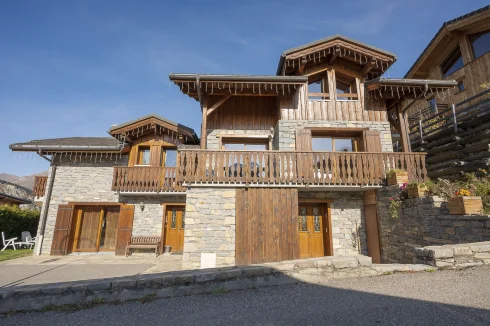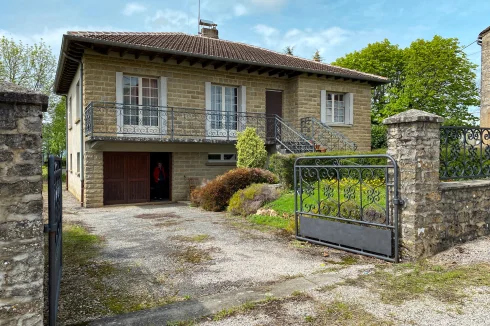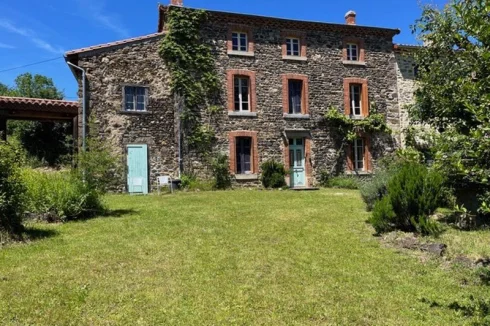Investing in French Rental Property - Loi Scellier
Friday 01 May 2009
New fiscal incentives have been introduced for the purchase of French property destined for renting, which seem to have struck a chord with investors.
The loi Scellier (named after the French politician who proposed the idea) offers a reduction in income tax of up to 37% of the acquisition cost of a French rental property.
The approach is a significant change of direction from existing tax breaks for new property rentals (known as 'Robien' and 'Borloo'), built as they are on the principle of charging a percentage of the acquisition cost against rental income.
The tax relief gained from such schemes is directly proportional to the marginal rate of taxation of investors, benefiting most those on the highest marginal rates. These schemes will be phased out by the end of the year.
In future, investors will be able to claim a direct reduction in their income tax bill, which has made these rental schemes far more attractive to those with lower marginal rates of taxation.
Clearly, however, as the schemes only grant a reduction in French income tax (and not a tax credit), it is not going to be of interest to those who pay no or little income tax in France!
Income Tax Reduction
The level of the reduction in income tax will depend on the year of acquisition of the property, and the controls the landlord is prepared to accept on the income of the tenant and level of the rent.
A basic reduction of 25% will apply to those properties purchased in 2009/10, reducing to 20% for a property purchased in 2011/12. No information is yet available on the rate for those properties acquired in later years.
The price basis on which the tax break can be granted cannot exceed €300,000, so for 2009/10 the maximum reduction in income tax is €75,000, and for the subsequent two years it is €60,000.
The reduction in income tax is available for nine years, which means a maximum reduction per year of €8,333 for property purchased in 2009/10, and €6,666 for a property acquired in 2011/12.
Where you are unable to make use of all of the reduction in tax in a single year (!), then any surplus can be rolled over for the subsequent six years, thereby making the income tax relief available for up to 15 years.
Thus, an investor who has a right to a reduction in tax of €3000 in a year, but who only has a liability of €2000 in that year, can roll over the surplus €1000 to the following year, and so on.
Maximum Rents
There are controls on the maximum rental that can be charged, but as these limits are generally above local market rents they rarely pose a problem for a prospective investor. In Paris, Cote d’Azur and Geneva it is around €21m², whilst in the provinces it varies from €12m² to €15m².
A landlord who is prepared to let the property to a tenant within a maximum income threshold and at a maximum lower rent also benefits from a supplemental reduction in income tax of 2% for an additional six years, provided the income threshold and rental conditions continue to be met . This brings the total reduction to 37% on the price of the property purchased in 2009/10 (32% for 2011/12).
The maximum annual income thresholds for tenants are generous, around €65K for a couple in Paris, and around €45K in the provinces.
The maximum level of the rent in such cases varies according to the location of the property. In Paris, Cote d’Azur and Geneva it is around €17 per m², whilst elsewhere it varies from around €10m² to €12m².
Accordingly, neither in terms of the income of the tenant, nor the rent you can charge, are you being asked to be social landlords.
In return, the landlord undertakes to let the property for a minimum of nine years. The first letting must take place within 1 to 3 years of completion, depending on the rental controls the landlord is prepared to accept on the letting.
The property must also be the main home of the tenant, and for properties let on a controlled rent, the occupant cannot be a member of the owner’s household.
All types of new residential property are eligible under this scheme – newly built properties and off-plan developments, as well as newly renovated properties. New self build properties are also eligible. In all cases the dwelling will need to achieve minimum energy performance standards.
Geographic Limits
Crucially, the scheme is only available in designated areas of the country, and is mainly restricted within these zones to towns and cities with a population of at least 50,000 residents. Some smaller coastal towns are also eligible.
This marks a significant change from the previous regimes, where tax breaks were more generally available across the country, with the result that many schemes were driven by the tax incentives they offered, not by the local demand for rental property.
By tightening the geographic boundaries of the new schemes, the government hopes to ensure that new developments will not sit empty, and that a satisfactory return will be available to investors.
Judging by the early results, it seems to be bearing fruit, for developers such as Kaufman & Board, Nexity and Bouygues Immobilier are reporting a significant increase in the level of sales in these schemes for February and March.
As always, however, if you are looking to invest, you need to do your homework on the level of local demand for rental property, on the market price for similar property in the area, and the likely return on your investment. Just because the scheme offers a tax break does not necessarily mean it is an attractive commercial proposition.
Why not visit our new website dedicated to French investment property?
Thank you for showing an interest in our News section.
Our News section is no longer being published although our catalogue of articles remains in place.
If you found our News useful, please have a look at France Insider, our subscription based News service with in-depth analysis, or our authoritative Guides to France.
If you require advice and assistance with the purchase of French property and moving to France, then take a look at the France Insider Property Clinic.





